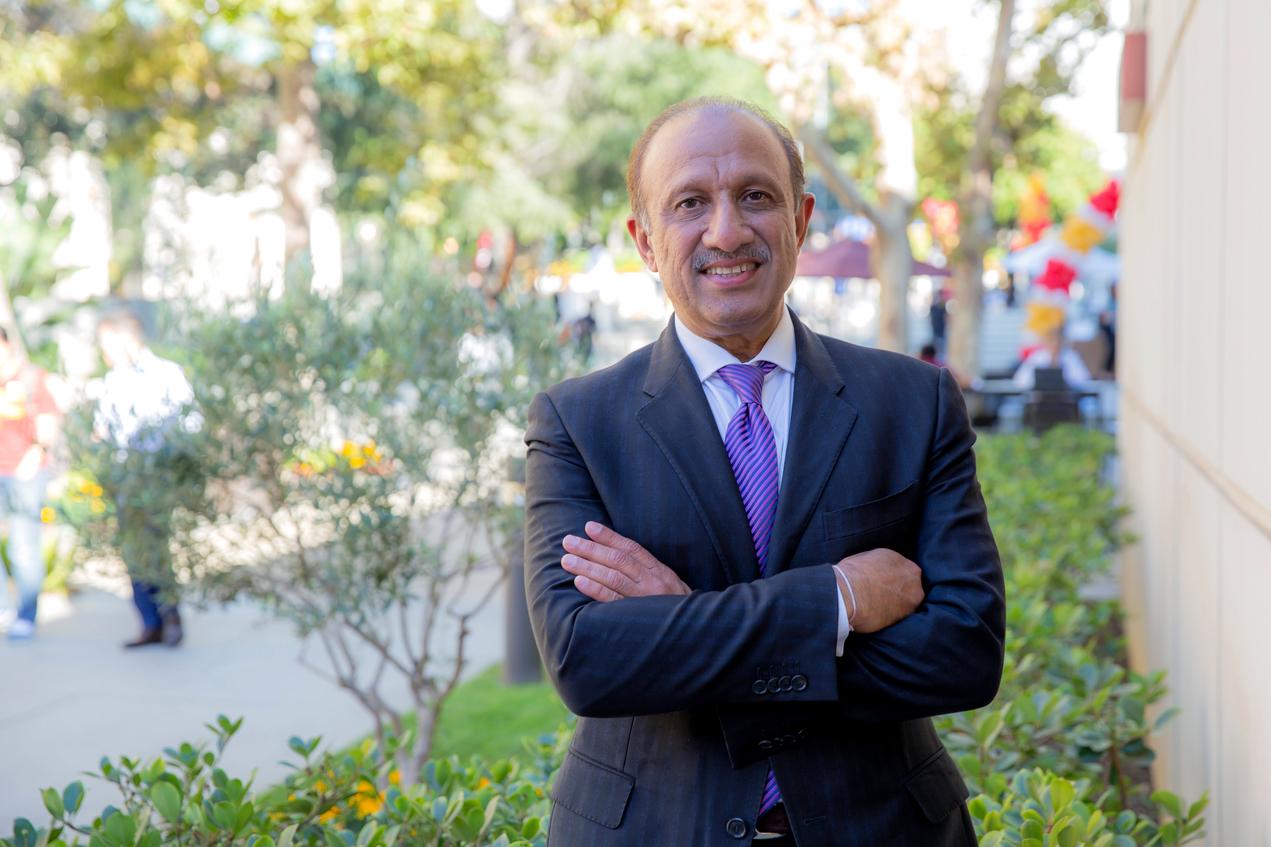USC Urology was once mainly recognized for surgical excellence, but the Keck Medicine of USC program is now also known for significant accomplishments across the spectrum of urologic care. An exceptional team of researchers continues to drive new innovations in treatment, promising an exciting future for USC Urology and what it continues to offer.
USC Urology is honored to once again have been recognized as one of the top 10 urology departments in the country, when U.S. News & World Report released its rankings in July. The distinction is based on physician expertise, patient experience, resident and fellow education and — most importantly — safety and health outcomes.
A promising new treatment for prostate cancer
One remarkable achievement was years in the making, with a recently published four-year study confirming the effectiveness of focal high-intensity focused ultrasound (HIFU) ablation as an alternative to surgery or radiation in the treatment of prostate cancer, with encouraging outcomes and shortened recovery time. This study reported the broadest experience with HIFU in the United States.
The outpatient procedure uses a focused ultrasound beam to raise the temperature inside the prostate to destroy targeted areas of tissue. The results have demonstrated that the treatment carries a low risk of complication and can help preserve quality of life. In fact, all patients remained continent, with no significant decrease in sexual function and minimal serious adverse events or complications.
Innovative utilization for MRI technology
MRI plays a vital role in pre-HIFU evaluation as well as cryotherapy, which also treats localized prostate cancer. In addition, a combined MRI and ultrasound fusion imaging process is now being used in targeted biopsies. Further developments regarding the use of MRI are on the horizon, including the incorporation of artificial intelligence (AI) algorithms with MRI imaging to help predict the staging and grading of prostate cancer.
Advanced surgical treatments to preserve long-term health
The surgeons at USC Urology are well-known for pioneering minimally invasive robotic procedures. Because these robotic urologists have played a central role in developing these techniques, they are among the world’s most experienced doctors when it comes to carrying out these surgeries. One such procedure is the partial nephrectomy for kidney cancer patients.
“Robotic partial nephrectomy is one of the worldwide calling cards of USC Urology,” said Inderbir Gill, MD, Distinguished Professor and chair of the Catherine and Joseph Aresty Department of Urology, Shirley and Donald Skinner Chair in Urologic Cancer Surgery and associate dean of clinical innovation at the Keck School of Medicine of USC.
The zero-ischemia partial nephrectomy, developed by Gill and his team, involves removing the cancerous tumor without cutting off the blood supply to the kidney. The procedure helps to minimize damage to the kidney during the procedure, which significantly preserves kidney function over the long term. With at least one patient, Gill has been able to save 80% of the kidney while removing the localized cancer from the patient’s system.
Federal funds drive urologic research forward
The accomplishments of USC Urology have drawn substantial support at the federal level.
“In the calendar year 2020 so far, our urology teams at Keck Medicine and Children’s Hospital Los Angeles have successfully obtained four RO-1 grants from the National Institutes of Health,” Gill explained. “Given that the funding rate for RO-1 grants is about 6% or so, this really speaks to the caliber of research being done by our team.”
The CHLA-focused grants are centered on stem cell regeneration research to slow kidney disease progression and better understand autoimmune nephropathies as well as proteinuric diseases. At Keck Medicine, one grant for $1.1 million will support a female pelvic medicine study testing whether stimulating certain parts of the brain can reduce pelvic pain in women. The other, a National Institutes of Health Award for $820,000, will go toward determining large-scale changes during aging and whether genetic mutation plays a role.
Yet another ongoing RO-1 grant is investigating sophisticated methods of conducting prostate biopsies to diagnose prostate cancer.
Expanding treatment possibilities for every type of patient
Among these accomplishments, USC urologists are also leaders in the fields of female pelvic reconstructive surgery; complex endourology and intra-renal surgery; pediatric urology; complex male reconstructive and prosthetic surgery; and advanced micro-surgery for male infertility. A pelvic pain treatment center is in development at the Beverly Hills location, and researchers are developing further uses for AI in diagnostics and treatment.
Currently patients can find USC Urology locations across Southern California, including, but not limited to: Arcadia, Bakersfield, Beverly Hills, Los Angeles, Palmdale, Pasadena and Thousand Oaks.
“We are currently reimagining our USC Urology enterprise,” Gill said. “Our faculty body is energized toward realizing what we see as our destiny — a fixture in the top 5 programs in the country within the next five years.”
— Kate Faye


